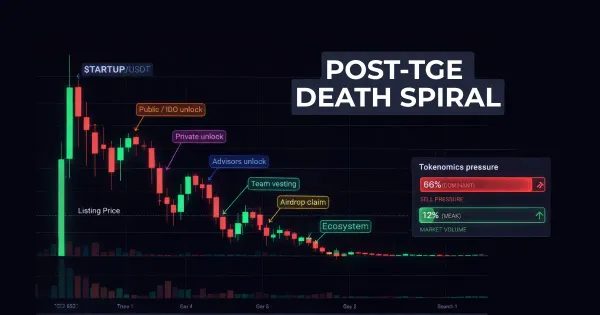Selecting the Right Advisor for Your Startup

Knowing what type of advisor is best for you and your company can change the trajectory of your growth and success. Having the right person (or people) to help you achieve your goals can unlock new opportunities, industry knowledge and networks which can create a successful business environment at your startup. Equally, making the wrong choice can seriously hamper your chances of growing a successful business.
At InnMind, we aim to create brilliant relationships between startups and investors to enable businesses to flourish. If you’re looking to accelerate your business growth, why not apply to one of our VC Pitching Sessions where you can get in front of established venture capital firms to pitch your idea and secure investment from leading venture capital firms. Within our platform, which is free to register for, you can find thousands of people that can help you on your journey.
After hundreds of hours of meetings with startup teams and advisors they work with, we found out that in general you can split those into 2 main types that reflect their approach, value and principles. To truly understand what is important to you and best for your startup while choosing an advisor, let’s look at the two key types of startup advisors existing on the market:
1) Consultants
This type of startup advisor thinks the best way to aid your business is NOT to help per se, but to ask challenging questions and let the founders find solutions for themselves. They will constructively criticise elements of the business and point out any potential problems or future hurdles.
Consultants are usually reactive, not proactive. This means that quite often they react to just one of multiple questions from the team at a time.
Typically, consultants are usually good salespeople and are focused on self-promotion as they will often help multiple businesses at one time. This means that it is in their best interest to see your startup succeed as they will want a good portfolio of work in order to attract more clients in the future.
As a business consultant, they may share key fundamental insights into growing a business (some of which may seem obvious to a lot of startup founders), rather than performing an in-depth analysis of the day-to-day processes in your business. Of course, this isn’t the case for all consultants but it’s much more likely than other types of startup advisors.
At the beginning of the relationship, often these consultants will charm you with name-dropping of previous clients, case studies and their fine-tuned sales pitch but, as is very often the case, with every month you’re likely to see them less and less often.
They are usually independent consultants, bloggers/KOLs (or if they have a business, then it’s in the consulting sector).
Review: Great if you want to spend money on learning the key fundamentals of business but they often lack the long-term day-to-day involvement in growing your business.
2) ‘Buddy’ entrepreneurs
This type of startup advisor is almost the complete opposite to a consultant.
Every month you work together with a buddy entrepreneur, you feel more confident that they are on your side. Often, they will mentor you in your business for free also.
This type of startup advisor usually comes from an entrepreneurial or investment background, which means they are likely to have faced many of the issues or problems that you yourself and/or your business will experience.
In almost every meeting, a buddy entrepreneur will ask how they can help. They will listen to your problems and try to suggest solutions. They are proactive and focused on developing your business for the future, not just right now as a consultant may do.
Buddy entrepreneurs tend not to talk much about themselves, but prefer to share practical advice learned through their own individual experiences. They may also describe case studies of businesses in your industry that refer to your specific situation.
Usually, a buddy entrepreneur only drops names when they want to introduce you to those people or open doors. This is invaluable as it means your business can be exposed to a wider net of influence and you can find more people to help you on your journey.
A downside to a buddy entrepreneur, however, is that sometimes they can miss questions or delay their responses as they will have other commitments with their own business or mentoring others too, but they will most likely come back to you asking how they can help in the time they have available.
Review: Great if you want a mentor that will actively help you to achieve your business goals. However, you do have to be conscious they may not be able to commit as much time as a paid consultant would.
Conclusion
These two types of startup advisors offer different benefits to you and your business. At InnMind, we champion long-term relationships that will benefit your startup in its journey of growth and expansion. To explore opportunities for collaboration with buddy entrepreneurs further, you can register for a free account and network with others in your industry, as well as key team members of established venture capital firms that will help you on your path to success in business.
If you would like more great tips on how to build your business better, sign up to our newsletter below.
Read also:










